No campaign can be found for "".
You might be interested in these petitions
-
Open Letter: Urgent Consent Law Reform Needed in AotearoaWe write on behalf of the Consent Law Reform campaign to urge immediate action on modernizing New Zealand’s sexual consent laws. New Zealand's consent laws are outdated, and in desperate need of review. New Zealand deserves clear consent laws that reflect the type of healthy relationships we want to see in our country. On 27 September 2022, Supported by HELP Auckland, Dear Em, RespectEd, Wellington Rape Crisis and other advocacy groups, Zubair formally delivered a 12,177-signature petition to Parliament calling for consent law reform. This petition reflected “an outcry from young people about the need for an affirmative definition of consent,” as HELP Auckland noted at the handover. In August 2023, the Justice Select Committee released its report on Layba Zubair’s petition, with unanimous cross-party support calling for Parliament to “consider re-examining the law on consent.” The Committee emphasized that “having a consistent definition of consent in the legislation may help to protect victims of sexual crimes,” and it specifically recommended examining all sexual conduct offences to include a clear, statutory definition of consent. We welcome the Committee’s finding that our consent laws are “due for re-examination”, and we remind all political parties that this is exactly the issue Layba raised in her petition. As the Committee urged, any review should listen to survivors and experts to ensure the law truly protects victims. Key Issues with Current Law Throughout the consent law reform campaign, we have consistently highlighted three key legislative issues which require addressing: • No statutory definition of consent. Currently the Crimes Act defines consent by what it is not (e.g. no deception, no force) but never what it is. This gap leaves juries and judges free to apply myths about consent. For example, victims are still subject to defence arguments that silence or hesitation is automatically consent. As one submission noted, “the absence of a positive definition of consent contributes to negative experiences” for sexual assault complainants. • Age-related inconsistencies. Our laws protect very young children from being asked about consent, but leave older minors exposed. The recent Victims of Sexual Violence bill (passed June 2025) finally ensures that children under 12 cannot be questioned about whether they consented, rightly affirming that children cannot consent to abuse. However, this change means that 12–16-year-olds now become the sole remaining cohort of minors who can be subjected to consent-defence arguments in court. In other words, once the under-12 protections take effect, all survivors aged 12–16 can still have their credibility unfairly attacked by outdated notions of consent under section 128B. The campaign has long warned that this loophole causes amplified harm for young survivors and must be closed by clarifying the law’s stance on age and consent. • Problematic “reasonable belief” standard. Even where the Act requires proof of non-consent, the defendant can argue they had a “reasonable belief” that consent was given. In practice, this has allowed juries to entertain rape myths. New Zealand has no affirmative consent law, which means that a rape myths, such as assumed consent within relationships etcetera may bolster the defendant’s claim of reasonable belief. In short, without a clear definition of consent to guide the “reasonable belief” test, courts may tacitly allow victims’ silence or submission to be read as consent, contrary to the spirit of affirmative consent taught today. The campaign has repeatedly raised this issue in submissions – noting that case law (e.g. Christian v R) still permits a passive acquiescence plus “some factor” (like being in a relationship) to count as consent – demonstrating the urgent need to rethink the standard.110 of 200 Signatures
-
Protect Voter Privacy: Expand Access to the Hidden Electoral Roll in AotearoaThe Electoral Commission currently makes the public electoral roll available for inspection at public libraries and electoral offices, but people who face safety risks can apply to be placed on the unpublished (hidden) roll (https://vote.nz/enrolling/get-ready-to-enrol/can-you-go-on-the-unpublished-roll/) . The Electoral Commission should expand access to the hidden roll and broaden eligibility so those with credible past risks can apply. There should also be faster and clearer application processes. Decisions should be made quickly, with clear reasons given if denied, and an easy appeals process.1 of 100 SignaturesCreated by Asher Thompson
-
Aotearoa's Pool Players Deserve Better: Remove NZPAWe are calling for the removal of the New Zealand Pool Association (NZPA) as the governing body of cue sports in Aotearoa, New Zealand. We want a new structure that is transparent, accountable, fair, and inclusive — one that upholds the mana (prestige) of players and the integrity of the sport. We need a new governing structure for pool in New Zealand that: • Is independent, transparent, and accountable. • Ensures due process and natural justice in all decisions. • Is guided by fairness, inclusion, and respect for all players. • Rebuilds trust with clubs, players, and international partners. This could mean replacing NZPA with a new governing body, or establishing an interim structure that allows the sport to reset, heal, and move forward.376 of 400 Signatures
-
Say YES to “Access” #YesToAccessNZ | Words shape worldsSay #YesToAccessNZ Access is a Right, not an Invite. We call on the people of Aotearoa New Zealand, our Prime Minister, Minister for Disability Issues, Government agencies, all public and private sector organisations and businesses to: Replace the word “Inclusion” (and its derivatives: social inclusion, workplace inclusion, diversity, equity and inclusion) with the word “Access” in all public documents, communications, role titles, departments and policies for at least ONE DAY - 3 December 2025, International Day of Persons with Disabilities - experience the shift in mindset, and make every effort to making this a permanent change. This isn't semantics, it's a commitment towards an accessible Aotearoa New Zealand for all.21 of 100 SignaturesCreated by Touch Compass Aotearoa New Zealand

-
NZ Government Sanction Israel NowThe New Zealand Government must sanction Israel now for its war crimes and breaches of international law across the Occupied Palestinian Territories.22,190 of 25,000 SignaturesCreated by Aotearoa for Palestine
-
Support state housing in West AucklandWe call on you to keep building the promised state homes in West Auckland that have been cancelled and do not allow the land to be sold off to private developers and investors.45 of 100 SignaturesCreated by State Housing Action West Auckland
-
Save NCEA - Strengthen, Don’t Replace it!👉 We urge the Government to stop the replacement process and instead engage in authentic, sector-wide consultation to improve and future-proof NCEA. 👉 We urge the Government to stop the narrowing of the New Zealand Curriculum and the removal of a wide range of NCEA subjects so as to ensure that learners’ needs and interests are met.6,569 of 7,000 SignaturesCreated by Aotearoa Educators Collective

-
Stop Failing our Māmā: Improve Perinatal Mental Health Services in AotearoaThis petition calls for the New Zealand Government to urgently reform perinatal mental health services and fund the establishment of mother and baby units to better support māmā experiencing acute postpartum mental illness. Call to Action: We urge the New Zealand Government to: • Implement reforms to the Mental Health Act to ensure that provisions are in place to ensure that women in the perinatal period receive appropriate treatment, and are treated with dignity and respect. • Fund mother and baby units that are accessible to postpartum women who are experiencing acute mental illness that requires inpatient treatment • Address the unique needs of pregnant and postpartum women within mental health services, ensuring that care is gender-sensitive and trauma-informed.1,250 of 2,000 SignaturesCreated by Kristy Maguire
-
Fair Pay and Better Conditions for Aotearoa's Teachers: An Investment in Our FutureAotearoa New Zealand's future is shaped every day in its classrooms. Our teachers are the dedicated professionals tasked with nurturing, educating, and inspiring the next generation. However, they are currently facing a crisis of unsustainable workloads, inadequate pay that fails to match the cost of living, and a lack of resources. This is leading to widespread burnout and a critical shortage of educators. We, the undersigned, urge the Government to take immediate and meaningful action to address this crisis. Investing in our teachers is not an expense; it is the single most important investment we can make in the future prosperity, innovation, and well-being of our nation. Therefore, we call upon the New Zealand Government to: 1. Commit to a significant pay increase that truly reflects teachers' qualifications, responsibilities, and the rising cost of living, making teaching a financially viable and attractive profession once again. 2. Implement actionable strategies to reduce excessive workload and administrative burden, including investing in manageable class sizes and simplifying compliance requirements. 3. Increase funding for classroom resources and learning support, ensuring teachers have the tools and specialist staff they need to support every student effectively. 4. Genuinely value teachers as trusted professionals by including their voices and expertise in the formation of education policy.53 of 100 SignaturesCreated by Valerie McKernan
-
Stop the Government taking away Outdoor EducationWe call on the House of Representatives to urge the Ministry of Education to keep Outdoor Education on the senior curriculum subject list, with dedicated curriculum, assessments, and resources.53,114 of 75,000 SignaturesCreated by Education Outdoors New Zealand
-
Hands Off NorthTec - Our People, Our Place, Our Future!We are calling on the Government and The Minister of Vocational Education, Hon Penny Simmonds, to put a stop to the proposed staffing, support services and programme cuts to NorthTec/ Te Pūkenga.450 of 500 SignaturesCreated by Student Voice
-
Keep building state housing in Tai TokerauWe call on you to proceed with building the desperately needed 450 Kāinga Ora homes in Tai Tokerau that have been cancelled by your government, and stop selling state houses to the open market.255 of 300 SignaturesCreated by State Housing Action Whangārei


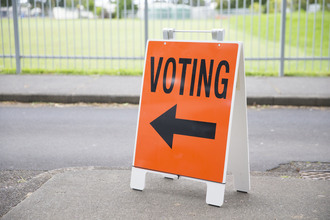


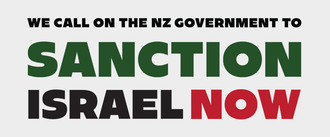
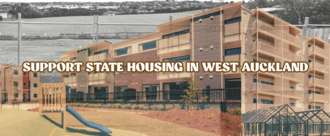
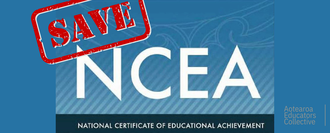
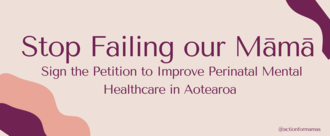
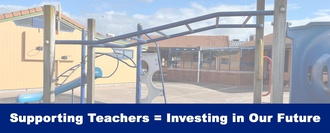
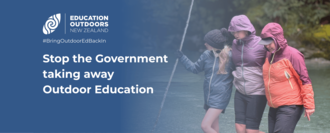.png)
.PNG)
